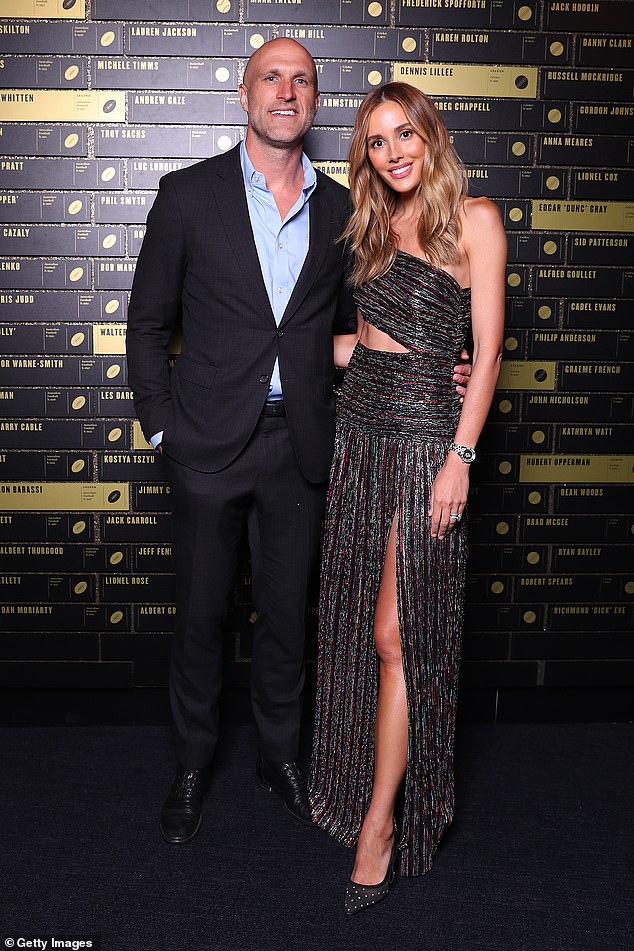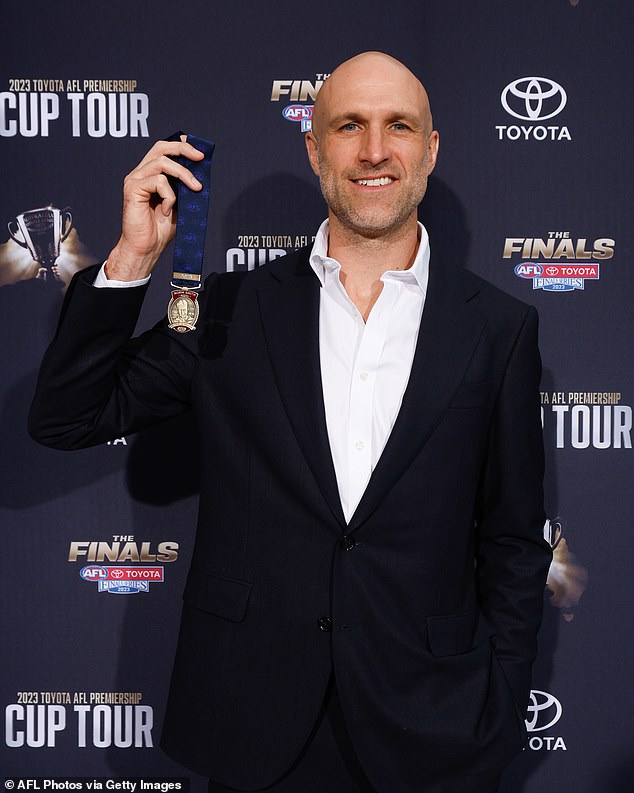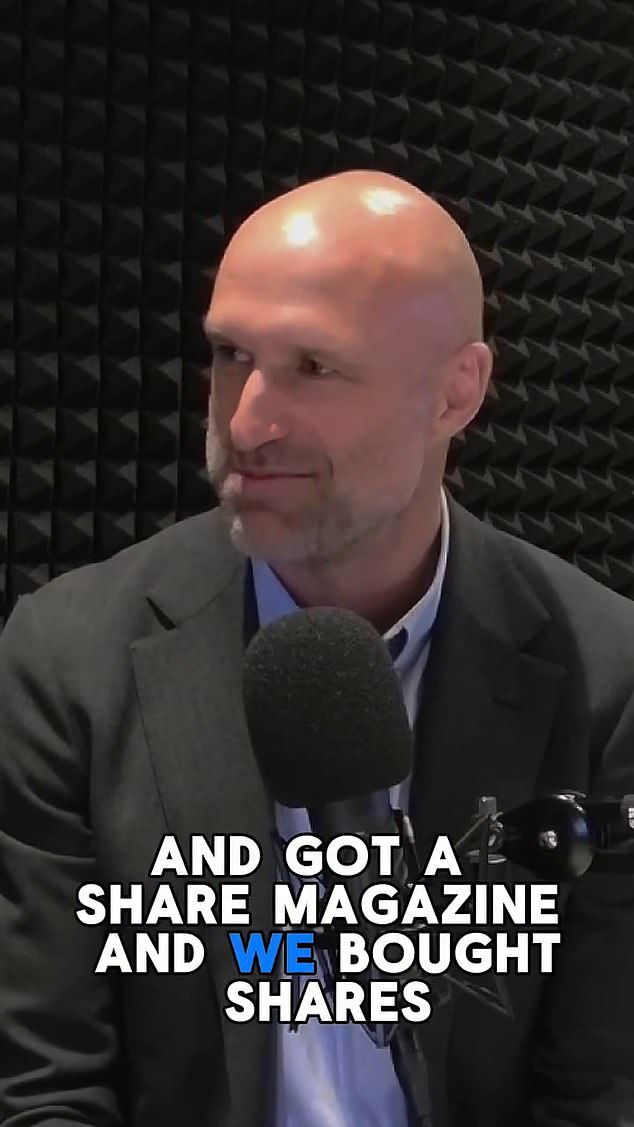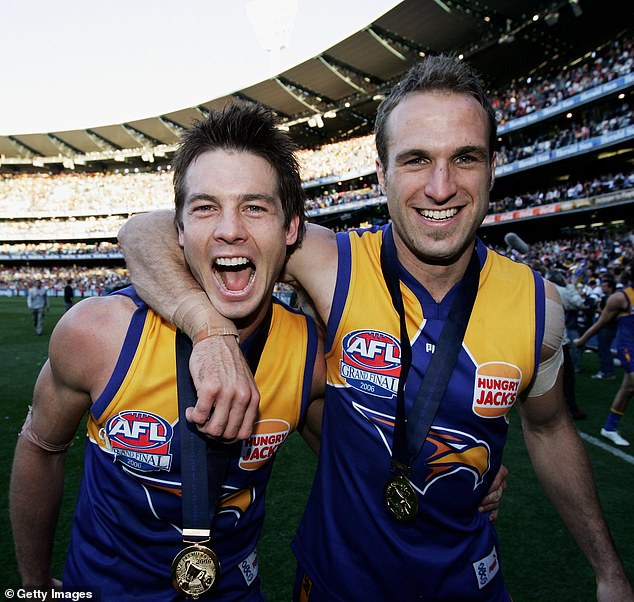Known for his brilliance on the footy pitch, AFL great Chris Judd is now making waves in the financial world and has banked his clients a pretty penny.
The dual Brownlow winner has been speaking out over the past few weeks on his decision to step into the financial industry following his glittering footy career, with Judd having revealed last week on the Finance Friends Podcast that he first got into investing when he received his first paycheque as a pro footy player.
The 41-year-old made a combined 279 AFL appearances for the West Coast and Carlton, notably captaining the Eagles to premiership glory during the 2006 AFL Grand Final, with the midfielder also being awarded the Leigh Matthews Trophy on two separate occasions.
After hanging up his boots in 2015, Judd could have chosen to continue to pursue a career in footy, working perhaps in broadcasting or as a coach. Instead, he is following his ambitions and love for trading, having founded his own investment company called Cerutty Macro Fund two years ago, alongside fellow market analyst Thomas Galanti.
‘This wasn’t an experiment, it wasn’t a job,’ Judd told Nine News.
‘Post footy, I was doing this to pay off the mortgage and the school fees.

Footy legend Chris Judd (pictured with his wife Rebecca) has been making his clients a pretty penny in his new life as a fund manager

The dual Brownlow Medallist and 2005 Norm Smith winner, has made his clients 20 per cent on their investments each year since he founded his investment firm Cerutty two years ago
‘You’re incentivised to learn pretty quickly.’
Judd, in fact, listens to around three hours of podcasts each and every day relating to finance and trading.
But the fruits of his labour are more than paying off it seems with Judd and Galanti having now returned more than 20 per cent to investors in both of the two years that his company has been running. That means investors working with Cerutty would have doubled their money in relation to the benchmark.
Judd has done this by spreading investments across mining, defence and even baby formula.
The ever-humble footballer opened up on his love for investing and the financial industry, stating he doesn’t ever feel like he’s at work in his new career.
‘It really is an infinite game, particularly listed equities,’ he said to Nine.
‘We’ve got to keep making sure we do a good job.
‘Whether I had the fund or not, I’d be doing this. Small team, love bouncing into work each day.

Judd revealed in a recent podcast that he had gotten into investment management while he was an academy-level footy player

Judd also guided the Eagles to the 2006 premiership, before he hung up his boots in 2015
‘If you can find something [work] you do for free, you know, what a gift.’
The 2005 Norm Smith medallist’s interest in finance goes back to when he was playing academy-level footy.
‘I bought my first shares when I was 16,’ the West Coast great told the Finance Friends Podcast.
‘I got some money from the AIS, an academy I was a part of. I looked at the old man and said: “What should I do with that?”
‘And he said: “I don’t know…”
‘So we walked down to the news agency and got a shares magazine.
‘And we bought shares. It was a toss-up between AWA, which was a small OEM manufacturer.
‘Or Woolworths, actually!’
‘We went with AWA, which fortuitously got bought out. It wasn’t a great company but we got out of jail on that one.
‘Woolworths would have been a good buy and hold from 26 years ago.’
He likened working in investing to footy, as there is always a scoreboard to see how well or poorly you performed at the end of the day.
‘I think naturally competitive by nature, there’s an attraction to listed equities where there’s a real scoreboard every day,’ the 41-year-old said.
‘I’m not the sort of investor who says the scoreboard is wrong. That’s the scoreboard and then you work out if you’ve won or not. There’s something about accountability that I really enjoy.’
